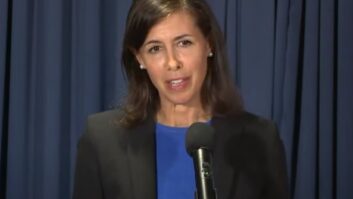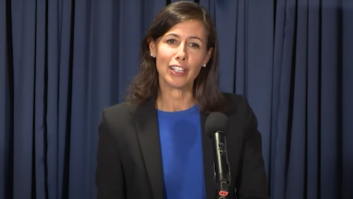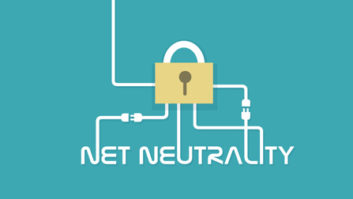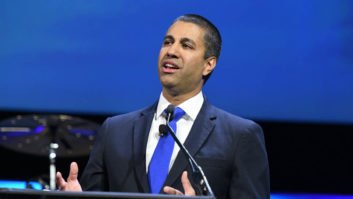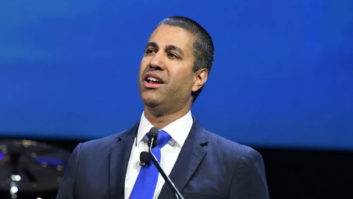You’ve probably heard a lot about Net Neutrality, and may have wondered what it really means. No wonder; it seems to mean a lot of different things to different people.
Although the origin of the term is usually credited to an academic paper in 2003 on Internet quality of service (QoS) and interoperability, it really came to the forefront of telecom policy discussion in November 2005, when Ed Whitacre, then CEO of Southwestern Bell, made comments in a Business Week interview that have subsequently been interpreted in various ways.
Whitacre responded to a question about whether he was concerned about new, Internet-based companies by saying, “Why should they be allowed to use my pipes? The Internet can’t be free in that sense, because we and the cable companies have made an investment and for a Google or Yahoo or Vonage or anybody to expect to use these pipes free is nuts!”
To some, his remarks indicated that telcos should be able to charge tiered fees to companies who engage in e-commerce in return for various levels of service — something that is not generally done today, and this was seen as a call for new regulation that would enable it.
Others interpreted his approach less charitably, however, seeing it as Whitacre being envious over how well those e-commerce operators were doing by transacting business on the service providers’ networks (while the telcos themselves were struggling).
The underlying sentiment came from a perceived inequity in telcos’ and cablecos’ heavy investment in infrastructure deployment and maintenance, while the “application” companies sailed to much greater profitability via ever-expanding connectivity, bearing none of the infrastructure burden.
The issue could have ended right there as just another rhetorical outburst, made by an industry insider so jaded that he missed the obvious point that without these application and content companies, the telcos’ broadband Internet service would be of little value to consumers, and would not draw the monthly subscription fees they enjoy.
Or perhaps at best, the comments could have sparked discussion that might become the basis for future regulatory relief, new rate plans or retooled business deals.
But subsequent comments from other telco execs — which suddenly became much more likely to receive press coverage and close scrutiny from policy wonks — seemed to reinforce the most nefarious interpretation of Whitacre’s original remarks.
Consider the words of another BellSouth spokesman Jeff Battcher, who said, “During the hurricanes, Google didn’t pay to have the DSL restored. We’re paying all that money.”
Or Verizon’s CEO Ivan Seidenberg, who in referring to the same Internet companies told reporters, “We have to make sure they don’t sit on our network and chew up our capacity.”
These and similar antagonistic comments set off numerous alarm bells, and as consumer and Internet-freedom activists mobilized, the issue snowballed into a policy debate of epic proportions.
That snowball seems to now have split into several separate ones, each of which continues to roll down the Hill on its own discrete course, with ultimate destinations still unknown.
Actions not words
One branch of the debate involves what telcos and other service providers have actually been doing (not just saying) that seemed to indicate non-neutral behavior.
In a celebrated 2005 case, the small Midwestern telco and ISP Madison River Communications blocked VoIP traffic on its customers’ DSL service. Complaints were soon filed with the FCC, and the matter was resolved relatively quickly, with the FCC enforcing its existing rules against Madison River’s clear abuse.
Many have cited this case as showing that current regulations already provide the necessary safeguards against such activity.
Yet there are other examples that could support the concerns of those who claim more regulation is needed.
Consider the case of AT&T’s censorship of a Pearl Jam Webcast from Lollapalooza, where the operator cut the audio feed for about 15 seconds of a song during which lead singer Eddie Vetter’s lyrics were expressing anti-Bush sentiments; or that of Verizon’s (short-lived) attempt to block access of abortion rights advocacy group NARAL Pro-Choice League to its mobile text messaging service.
Both of these actions resulted in subsequent PR nightmares for the operator, and their impact fueled the flames of the policy debate.
More recently, Comcast has attempted to block the use of BitTorrent and other P2P file-sharing services by its broadband subscribers, as well as simply cutting off users that the company felt exceeded an unstated limit of downloading.
Generally, these issues have been settled in the marketplace, but this has not stopped many from pointing them out as clear examples of the need for new legislation or regulation ensuring Net Neutrality — particularly given the true or near monopoly on broadband service that some operators may have in a given area.
Others caution that such regulation could have the unintended consequence of curtailing innovation and constraining ongoing broadband deployment.
Meanwhile, the wireless Internet continues to grow in a way that makes it a poster child of sorts for Net Neutrality. The very different nature of wireless broadband networks’ gestation (particularly in the U.S.) has caused many to cite it as a perfect example of what could happen to the entire Internet if Net Neutrality were to go away.
Wireless broadband is a far less neutral place, with network operators wielding considerably greater control over what and how its customers access Internet content. While some believe this situation is improving via the exertion of market forces, others still feel strongly that additional legislation or regulation is required to provide guarantees that wireless broadband will eventually come to as neutral a position as the wired Internet.
Seeking answers
Perhaps most vexing is that the multiple threads above are often remixed and confused, and the overall scope of the Net Neutrality issue now seems to cover a single, broad range extending from telecom regulatory reform to privacy issues to First Amendment rights to curbs on innovation.
This makes its ultimate solution ever more elusive.
To date, attempts to pass new legislation or regulation on the subject have been largely unsuccessful, but as noted, many instances of non-neutral action have nevertheless been resolved by the marketplace or by regulatory action.
So the overarching question remains one of deciding whether existing protections are adequate, or whether more government intervention is required. This debate likely will continue for some time to come.
Meanwhile, this should not be mistaken for a purely academic or legalistic discussion, or one that has no real impact on the radio business. How the wireless Internet matures will likely have significant bearing on radio’s future there.
For example, Verizon currently includes in its acceptable usage agreement with consumers for its EV-DO wireless broadband service a prohibition against using the service for long-term streaming media reception, and enforces this with a monthly cap on data received (in what it otherwise promotes as an unlimited, flat-rate service).
If this remains in effect and becomes normal, industry-wide practice, it could seriously inhibit radio broadcasters’ use of the wireless Internet as an alternate delivery platform for future services.
Of course, some in radio would like nothing more than to see operational constraints befall broadband wireless Internet, thus thwarting its emergence as a competitive service to traditional radio.
So for better or for worse, the progress of the Net Neutrality debate is important to the radio broadcasting business, just as it is to American citizens at large.





